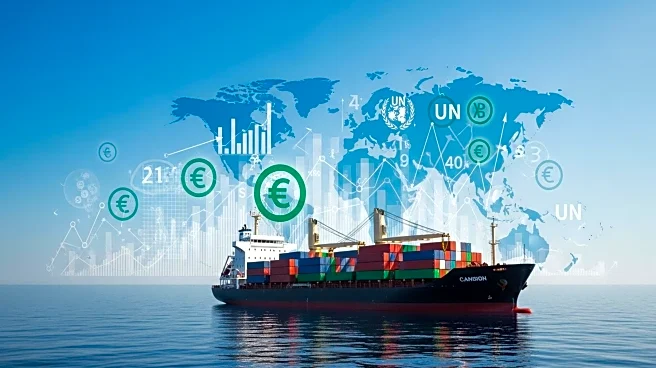What's Happening?
The UN Security Council has voted to re-impose the 2015 sanctions regime on Iran, following unsuccessful negotiations with European countries. The sanctions, set to be reinstated on September 27, will affect Iran's shipping industry, particularly the operations of the Islamic Republic of Iran Shipping Line Group and the National Iranian Tanker Company. The sanctions aim to restrict Iran's oil and gas exports, banking, and access to international financial systems, increasing pressure on the country's economy and political stability.
Why It's Important?
The re-imposition of UN sanctions on Iran is significant for global trade and geopolitical dynamics. It will likely disrupt Iran's shipping operations and oil exports, affecting international markets and trade relations. Countries that have continued trading with Iran despite previous sanctions may face increased scrutiny and pressure to comply with UN mandates. The sanctions also have implications for Iran's domestic economy and political landscape, potentially exacerbating internal conflicts and affecting regional stability.
What's Next?
Iran may seek diplomatic solutions or concessions to avert the full impact of the sanctions. The upcoming General Assembly in New York presents an opportunity for Iranian leaders to negotiate with international counterparts. However, substantial proposals backed by the Iranian Supreme Leader are necessary to prevent the snapback. The situation may lead to further diplomatic engagements and shifts in international alliances, as countries navigate the complexities of sanctions and trade relations.









